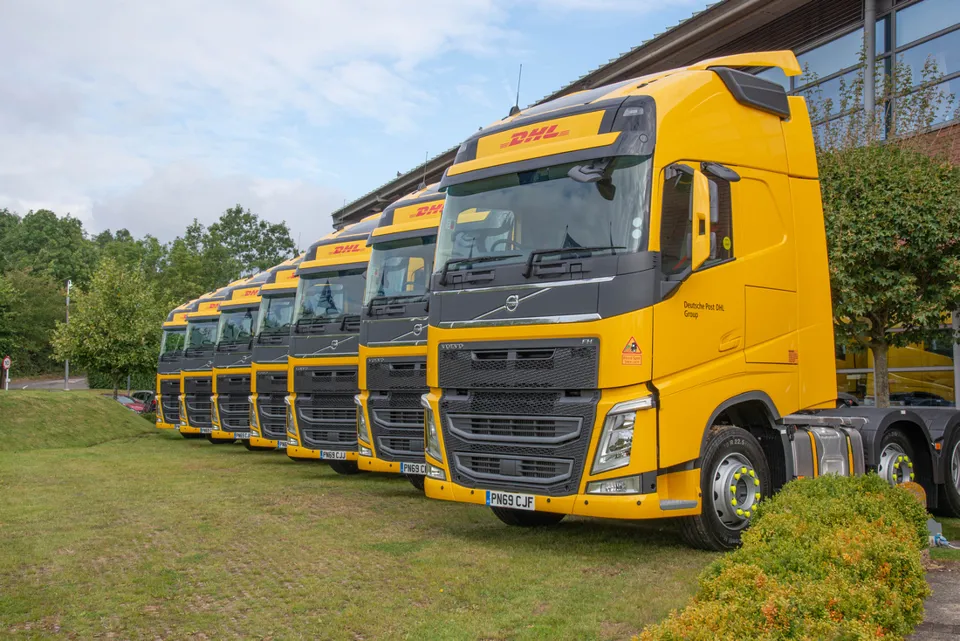DHL Supply Chain is rolling out hydrotreated vegetable oil (HVO) fuel across the majority of its on-site fuelling stations throughout the UK.
The mass use of the fuel by its fleet of trucks will enable DHL to assess operational processes and the performance of the fuel.
With installation scheduled for completion by the end of the year, DHL says that transitioning to HVO fuel will deliver 80-90% carbon savings compared to diesel, with an estimated 15,000 tonnes of CO2e savings expected to be delivered.
The firm has already invested in other alternative fuel vehicles (AFVs), deploying both biogas and electric trucks.
Four Volvo FM electric heavy duty tractor units were adopted by the delivery firm in March, replacing diesel vehicles for a range of activities.
The 40-tonne Volvo FM electric trucks are designed for high-capacity deliveries and feature Volvo’s largest 540kWh battery which provides 666hp.
They come with a range of up to 300km/180 miles, which DHL says will allow them to complete full round-trips servicing its retail and automotive customers across the UK.
DHL’s choice of HVO to accelerate its decarbonisation journey follows in the wake of many other commercial fleet operators choosing the diesel alternative.
In July, Royal Mail announced it was ditching diesel to fuel some of its HGV fleet in favour of HVO.
Royal Mail’s Sheffield mail centre, Midlands ‘super hub’ and Manchester vehicle operating centre were the first sites to transition to HVO with four more locations set to follow.
Produced from biomass such as used cooking oils and waste from food manufacture, HVO is a drop-in fuel, meaning it can be used within existing vehicles without compromising operational performance, removing the need for new infrastructure or fleet.
Saul Resnick, CEO of DHL Supply Chain UK and Ireland, said: “The installation of HVO fuel across our bunkered sites represents a critical moment in our multi-fuel decarbonisation strategy.
“HVO improves our service to customers by introducing a low-carbon renewable alternative fuel with minimal disruption.”
More than six million litres of HVO fuel will be rolled out within DHL’s on-site fuelling stations this year, replacing diesel in 20 locations across the UK.
In 2024, the business plans to install additional fuel bunkers across its network, increasing its use of HVO fuel to over 24 million litres, and with the effect of a full year, the carbon savings impact is expected to be even greater.
Resnick continued: “We are rolling out HVO at scale and with impressive pace, to deliver immediate and substantial carbon savings while we continue to work towards viable zero-emission alternatives.
“We are extending an invitation to our customers to join us on this transformative journey, and actively collaborate with us in adopting these greener alternatives, we can provide them with a powerful tool to make their supply chains greener.”





















Login to comment
Comments
No comments have been made yet.